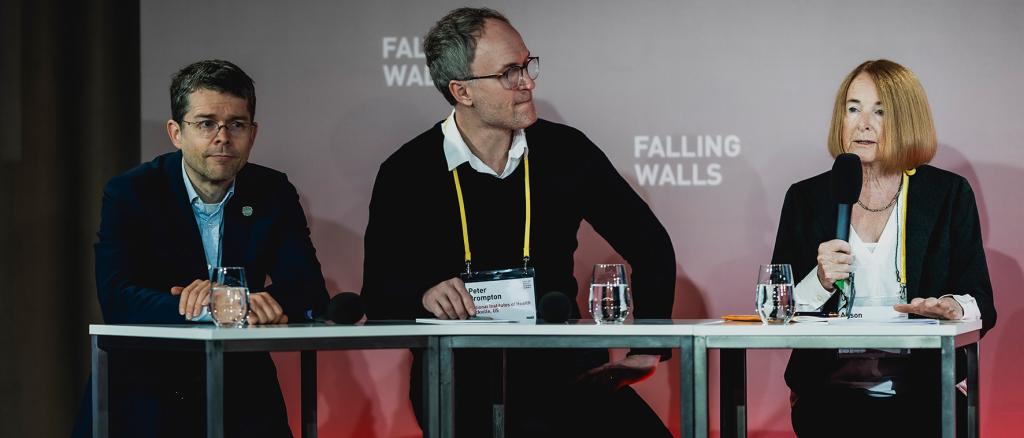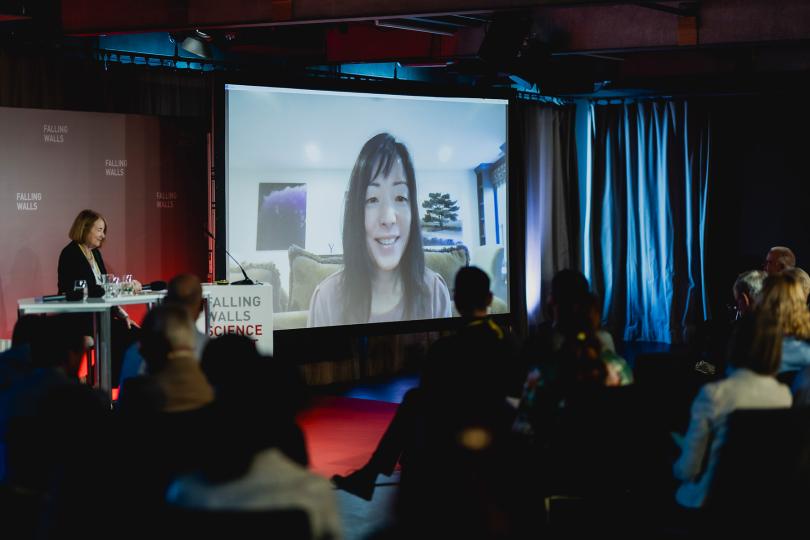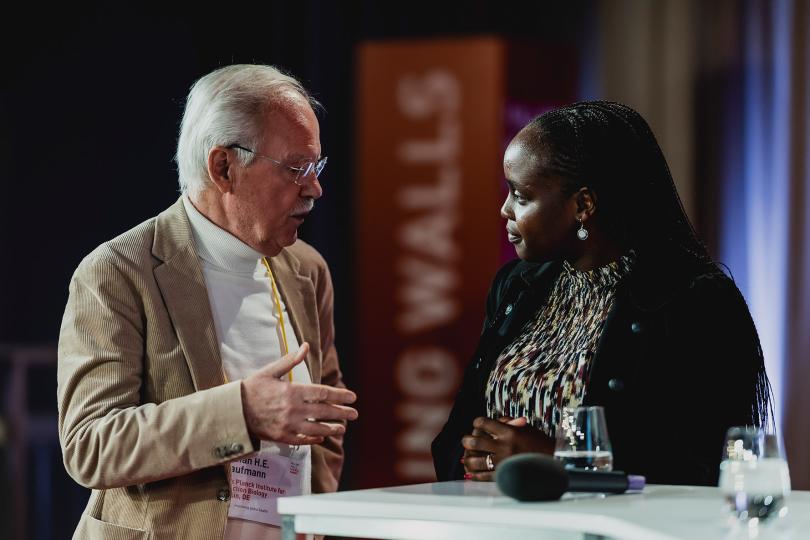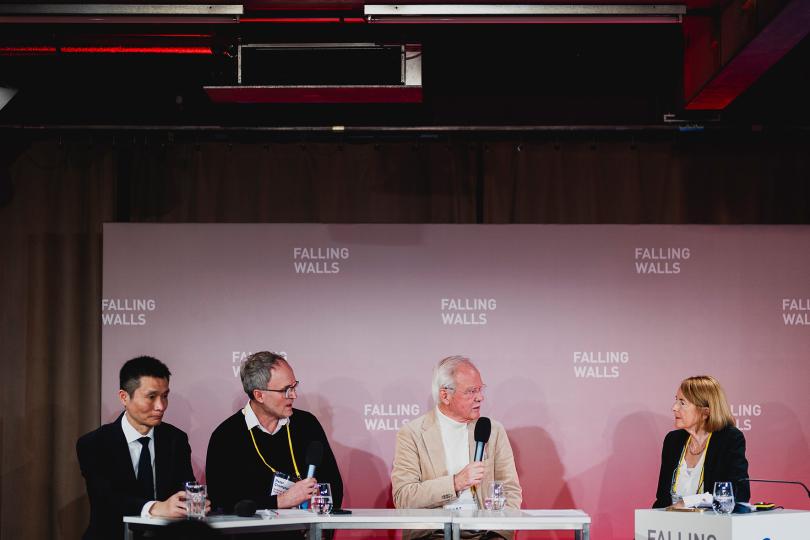
The multifaceted agenda focused on two main themes: “Diseases of Worldwide Significance” and “Technological Breakthroughs in Life Sciences”. A wide-ranging spectrum of topics was offered – from infectious diseases to cardiology and neuro-oncology, all the way to developments in visual prosthesis, artificial photosynthesis and the improvement of crop yields via modifications in gene regulation.
Two outstanding speakers enriched the program with additional expertise: Akiko Iwasaki, Ph.D. and professor at Yale University, who recently received the Else Kröner Fresenius Prize for Medical Research 2023 endowed with 2.5 million euros. She reported on her research work regarding post-acute infection syndromes (PAIS) such as Long COVID. Prof. Dr. Dr. Stefan H. E. Kaufmann from the Max Planck Institute for Infection Biology in Berlin provided insights into tuberculosis research and vaccine development.
Ethical and political issues within the context of the two main themes cited were debated at a panel discussion. For example: “What has to happen so that the global community also combats diseases of worldwide significance such as tuberculosis or malaria, or intensifies the research and development of vaccination strategies and therapies, as was the case with the coronavirus.”
Alongside the interest-arousing and up-to-date papers presented, the symposium equally provided the opportunity for an interdisciplinary exchange that transcended all career phases. Among the participants were two Else Kröner Fellows from the Roland Berger Stiftung foundation and several fellows from the Else Kröner Graduate Research Program. The entire symposium was moderated by Alison Abbott. The science journalist has worked for many years at Nature and was honored in 2019 as European Science Journalist of the Year.


